THE GREEK WINE CULTURE SINCE ANTIQUITY


For us Greeks, wine is indelibly associated with the history of our civilization. Being a staple of Greek diet along with olive oil and bread, wine has faithfully travelled along with Greek culture, economy, religion, as well as, our people’s social and everyday life on a historical journey from pre-historic times until today.
THE ANCIENT ELIXIR
With a history of 6,500 years of making traditional Greek wine, Greece is fairly considered one of the oldest wine producing regions in the world with ample time to refine and transform this ancient ‘elixir’ into a growing favorite of sommeliers, wine connoisseurs and ordinary wine lovers worldwide.
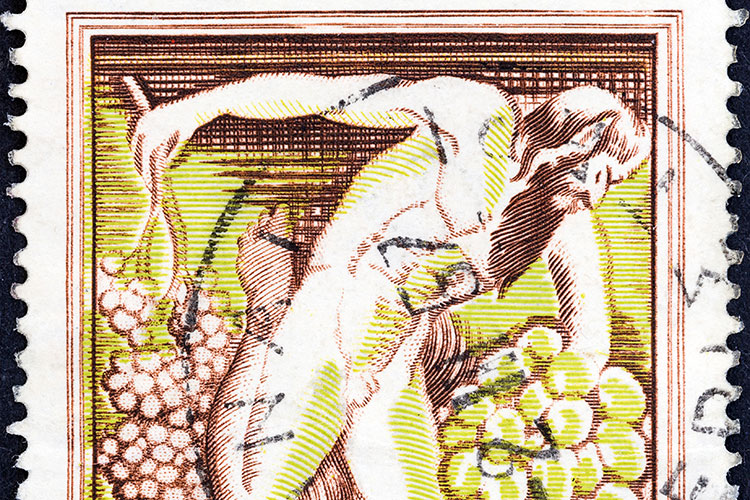


THE WORSHIPED LIQUID
A Plunging into the depths of time from the worship of Dionysus – the ancient Greek wine God – and Hippocrates – one of the most outstanding figures in the history of medicine – who appreciated the medicinal qualities of wine and frequently prescribed it, to the Byzantine era and the maintenance of viniculture ancient tradition, undoubtedly indicates the degree of maturity behind Greek terroirs and winegrowers in the creation of the new wines of Greece.
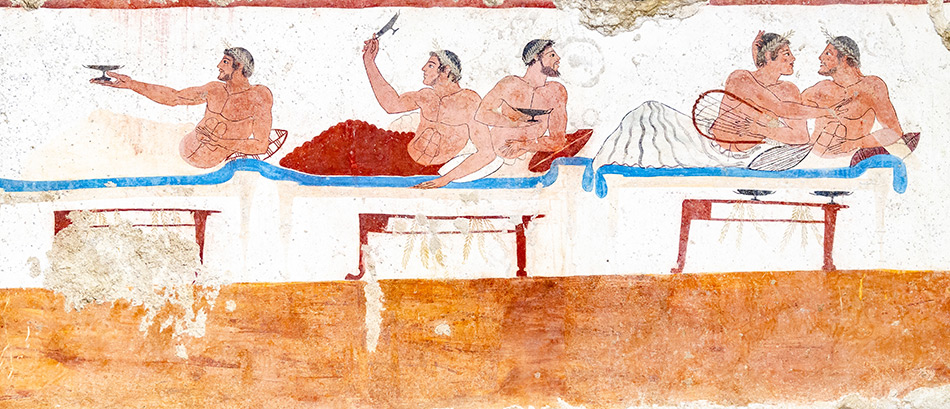

MINOAN ERA
(3000 BCE)
Excavations have uncovered grape seeds, pips and pomace, as well as, vinification residues which have been dated to the end of the prehistoric period. It is believed that viniculture likely reached Greece through Mesopotamia and Egypt and was widespread in the Cyclades and Crete.
Dating back to the Neolithic age, the first vestiges of winemaking were found in the ancient city of Philippi in Eastern Macedonia – a Unesco protected monument.
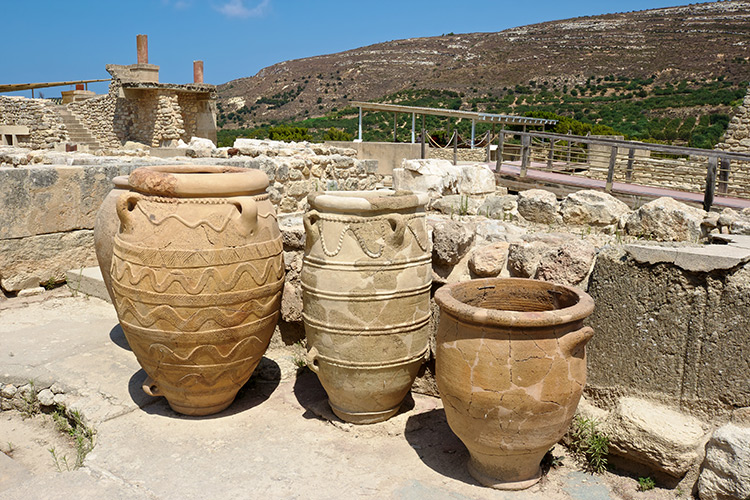

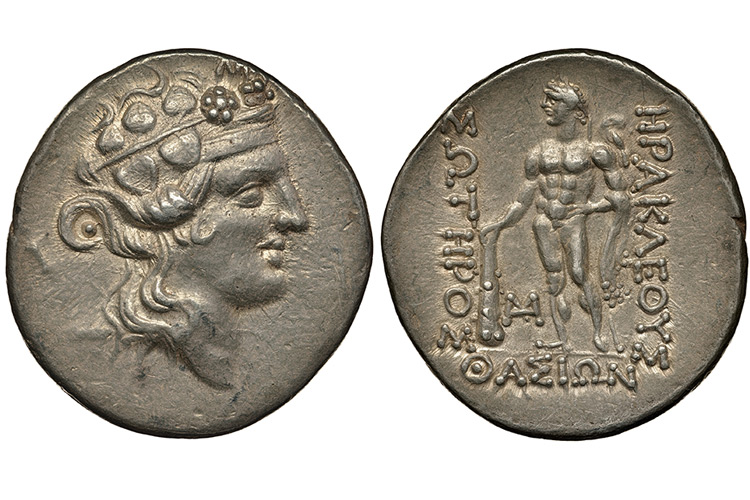

The oldest grape-press discovered in a Minoan mansion in Vathipetro in Crete (3,500 years old) as well as, impressive amphorae, vast underground wine storage facilities and relevant wall paintings found in Minoan Palace provide evidence not only of wine’s central role in the life of the island, but also of the sophistication of the Minoans’ know-how.
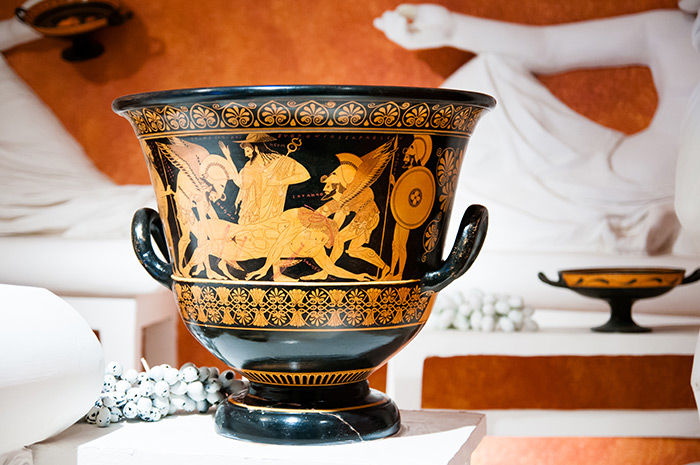

ARCHAIC ERA
(750 BCE)
By 7th century BC there is hardly any region in the ancient Greek world where viniculture is not spread. The worship of Dionysus, son of Zeus, has also grown and with it the consumption of wine. The Athenians and citizens from all over Greece would gather together to worship Dionysus in wine festivals.
The largest and most prolific of these festivals was the Great Dionysia, where Greeks would sing and dance and revel in a state of madness in worship of the god consuming large amounts of wine. Details of how wine was to be traded were found in a marble inscription of the 6th century BC in Thassos.
In ancient Greece, wealthy men often gathered for decadent banquets called symposia; not only an occasion for thinking and philosophizing after the meal, the symposium was also a gathering for enjoying women, drinking wine, singing and dancing for pleasure.
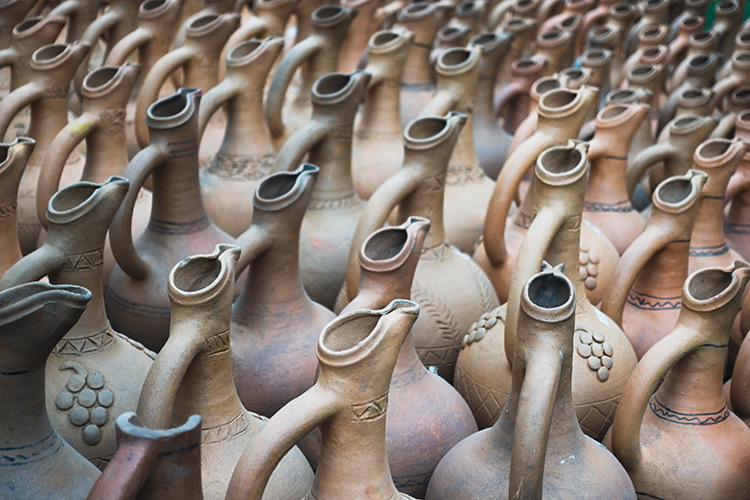

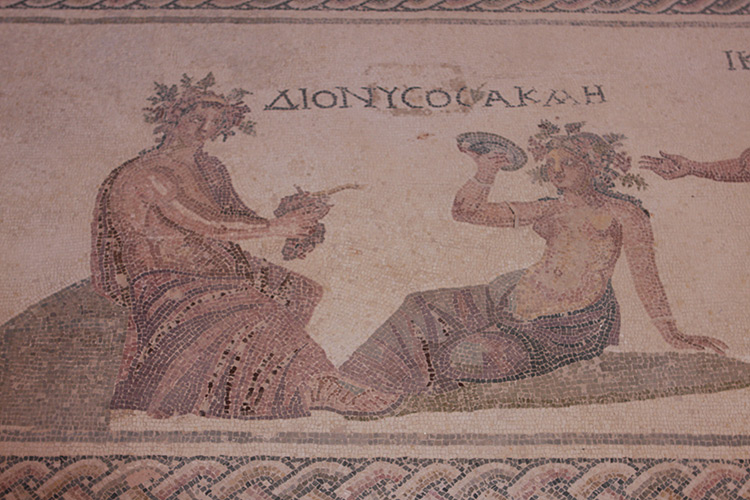

Ancient Greece had a significant influence on the ancient European wine making cultures of the Celts, Etruscans, Scythians and Romans. Greeks at that time developed new methods of viticulture and wine production that they shared through trade and colonization with early wine making cultures that have since become significant wine producing countries such as France and Italy.
Homer informs us that, at his time, Cretan wines were renowned throughout the known world.
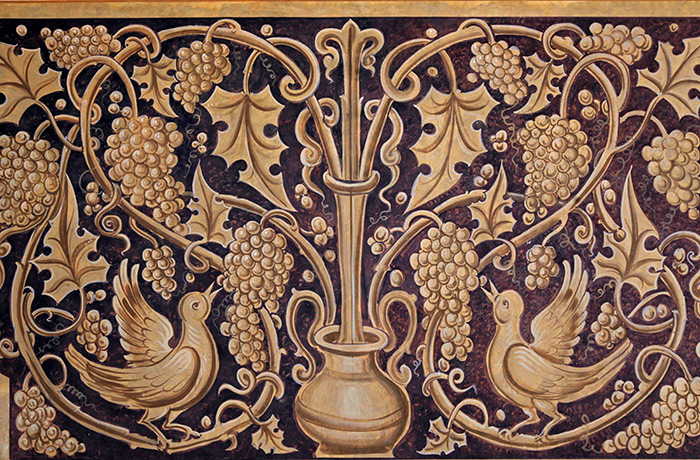

BYZANTINE EMPIRE
In the millennium that the Byzantine Empire went through, the diachronic viniculture tradition of the ancient Greek civilization was maintained despite the expansion of Christianity and the decline of symposia and pagan festivities. Throughout this period the winemaking practices have evolved and the Greek wine has continued to hold an important commercial and social role.
A plethora of winemaking techniques thrived and the grape vine finds its way into byzantine art and into Christianity through the viniculture activities in monastic life, especially in Mount Athos and the use of sweet wines in the communion rituals.
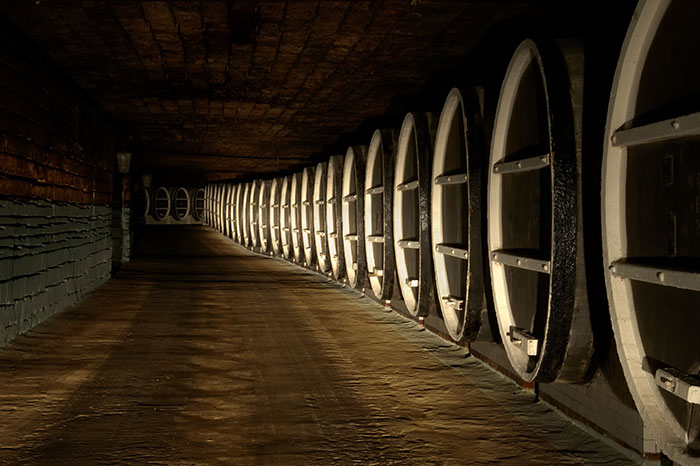

MODERN ERA
Despite their ancient heritage, the new wines of Greece, promote themselves not only by virtue of their past glory but mainly of their present attributes turning traditional wine production into a distinct and contemporary industry in today’s wine world.
The new generation of wine producers has considerably contributed to the rebirth of the Greek wine industry by investing heavily not only in people, education, know-how, state-of-the-art techniques, and about 300 native excellent vine varieties but also by importing international grape varieties making Greece one of the most exciting emerging wine countries.




In Greece today, there are more than 1300 wineries from which a significant number are awarded every year in international competitions such as Decanter or Texsom International Wine Awards with many of their wines reaching the top of the world’s ratings.
THE WINE CONNOISSEURS INVITE ALL TRUE LOVERS OF WINE INTO AN EXPERIENCE OF DISCOVERY AND EXPLORATION OF THE NEW WINES OF GREECE!

